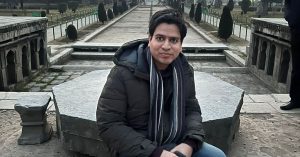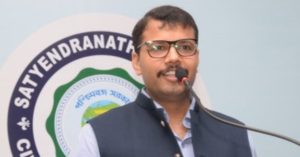IAS Officer Doubles District Literacy to 100%, Drastically Reduces Bank Frauds
District Collector and IAS officer Harshika Singh tells us how she worked towards making Mandla district 100 per cent functionally literate.
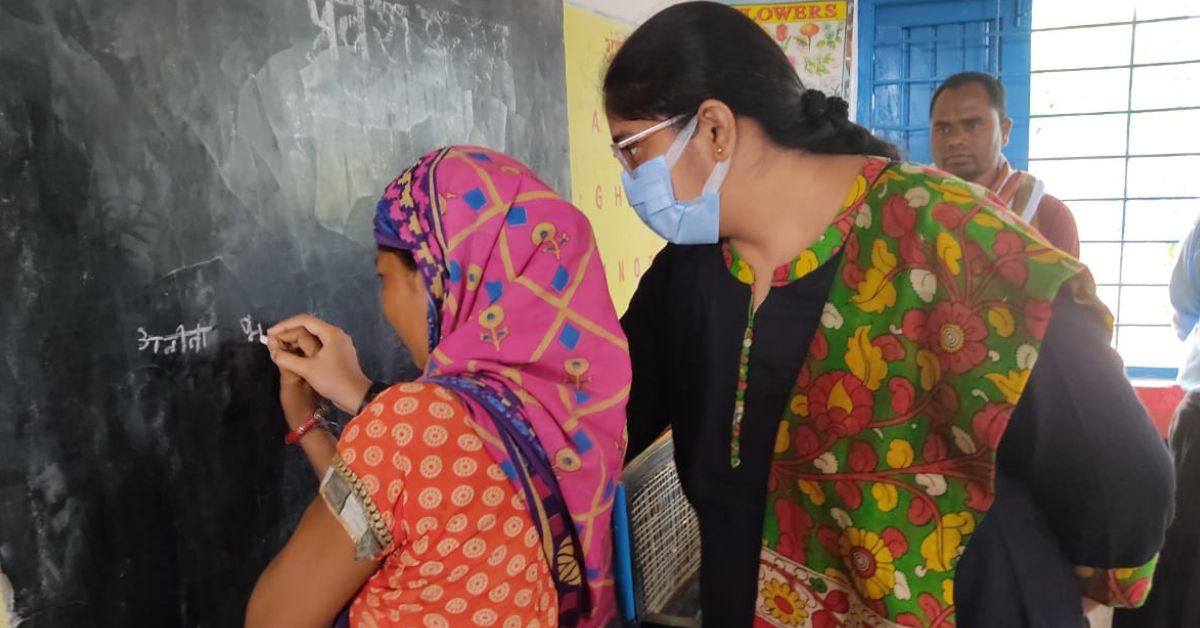
Sarita Devi* (name changed) (38), a resident of Mandla in Madhya Pradesh for many years now, has been saving money every month. The daily wager planned to ensure that every rupee she saves went into her bank account, all to buy her daughter a cycle. This money, she says, would’ve helped her get to school in time every day.
She was filled with pride at having opened an account into which she diligently deposits money.
But a few months ago when she went to the bank to check on how much money she had collected she was in for a shock when she realised that her account had been wiped clean. All that remained was a few hundred rupees.
She was made to realise that due to her illiteracy, like many others, she too had fallen for a scam. The middlemen who assured help in setting up the account and handling it had siphoned off the money. She was not alone in this moment of woe – many others in the village had gone through the same.
It was to change this and much more that District Collector Harshika Singh launched a programme to ensure 100 per cent functional literacy in the district.
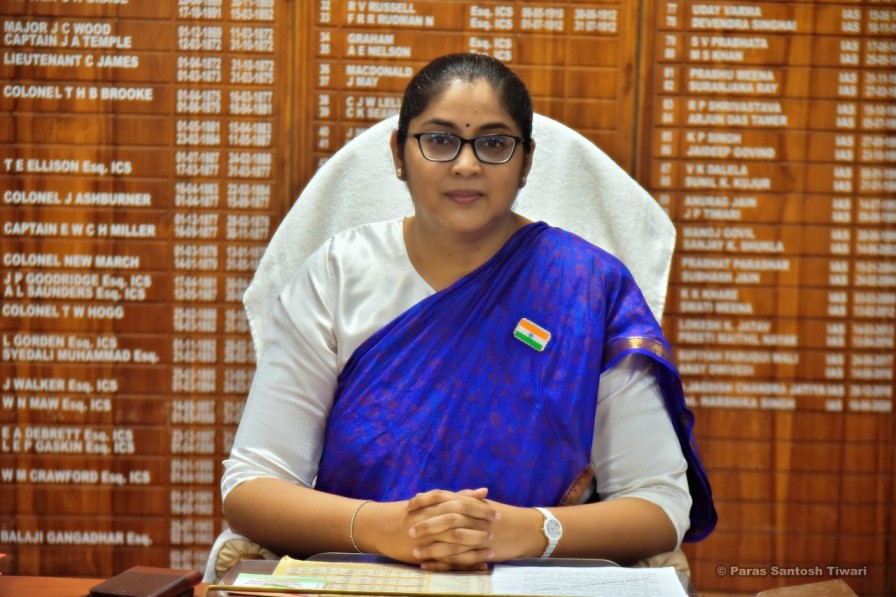
Speaking to The Better India, Harshika says, “These people work very hard to make ends meet. It is unfair that they are robbed of their money only because they are not literate. To right this wrong we introduced the adult literacy programmes.”
Freedom from illiteracy
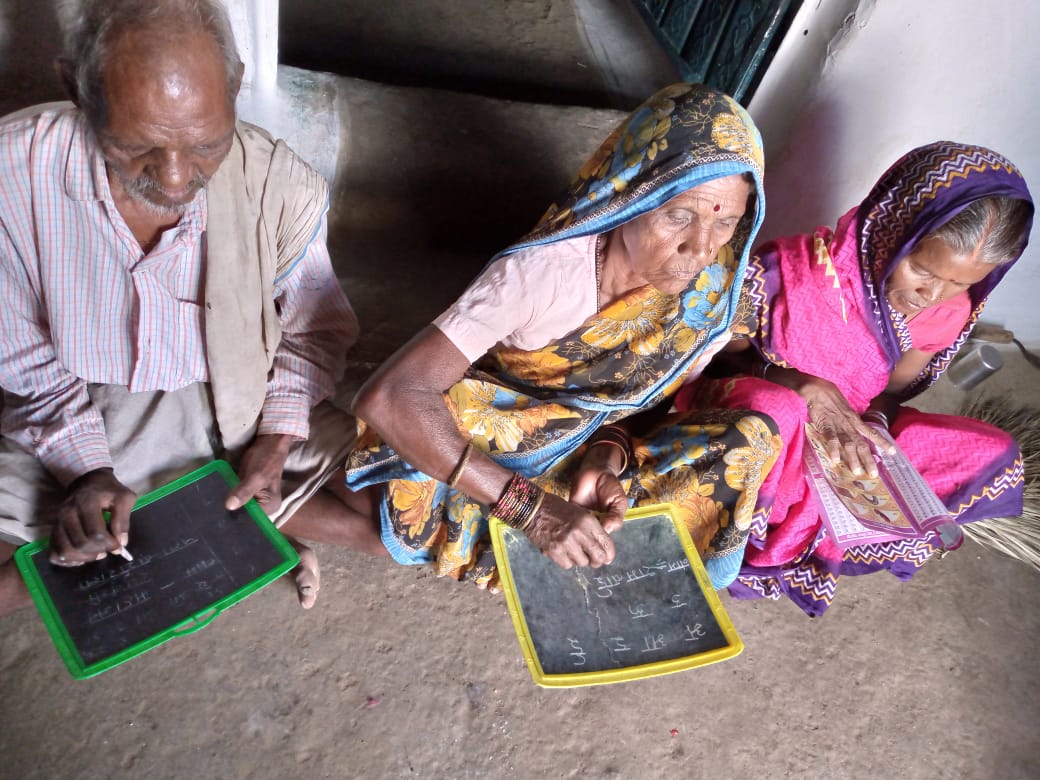
A tribal district, which falls on the border of Chhattisgarh, Mandala is also a Naxal-affected district. “Unfortunately, a lot of funds from various government schemes that were meant for the betterment of these tribal communities, especially women, were getting siphoned off due to various bank forgeries. Many times because they were asked to put their thumb impression, they did not necessarily know what they were saying yes to,” she says.
This led to a lot of money getting lost, sometimes without any trace. Learning about this scam hit Harshika and that was when, along with her team, the idea of making the district inhabitants ‘functionally literate’ (able to write their name, count and read and write in Hindi) came about. “It became important for us to teach them the basics. Besides being able to sign their names the programme also educated them on handling money,” she says.
Explaining this further, she says, “If someone was making a withdrawal of Rs 1,000, we started telling them about the various note denominations that they might be given by the teller at the bank.”
“A 2011 survey revealed that the female literacy percentage in the district was at 56 per cent and the overall district literacy was at 68 per cent,” she says. With no extra resources at their disposal, Harshika decided to rope in the literate population. She attributes a lot of the success of the programme to this.
Within the district itself, the team was able to mobilise 25,000 literate volunteers to take this programme forward.
Yet, the programmes weren’t without challenges and hiccups. “The terrain in this region is harsh and to organise a static school was difficult. To adapt to this, we organised these sessions close to their homes and even at the work site, where during their lunch break they would learn,” says Harshika.
There were special late-night classes that were organised for the men as well.
Bringing the community together
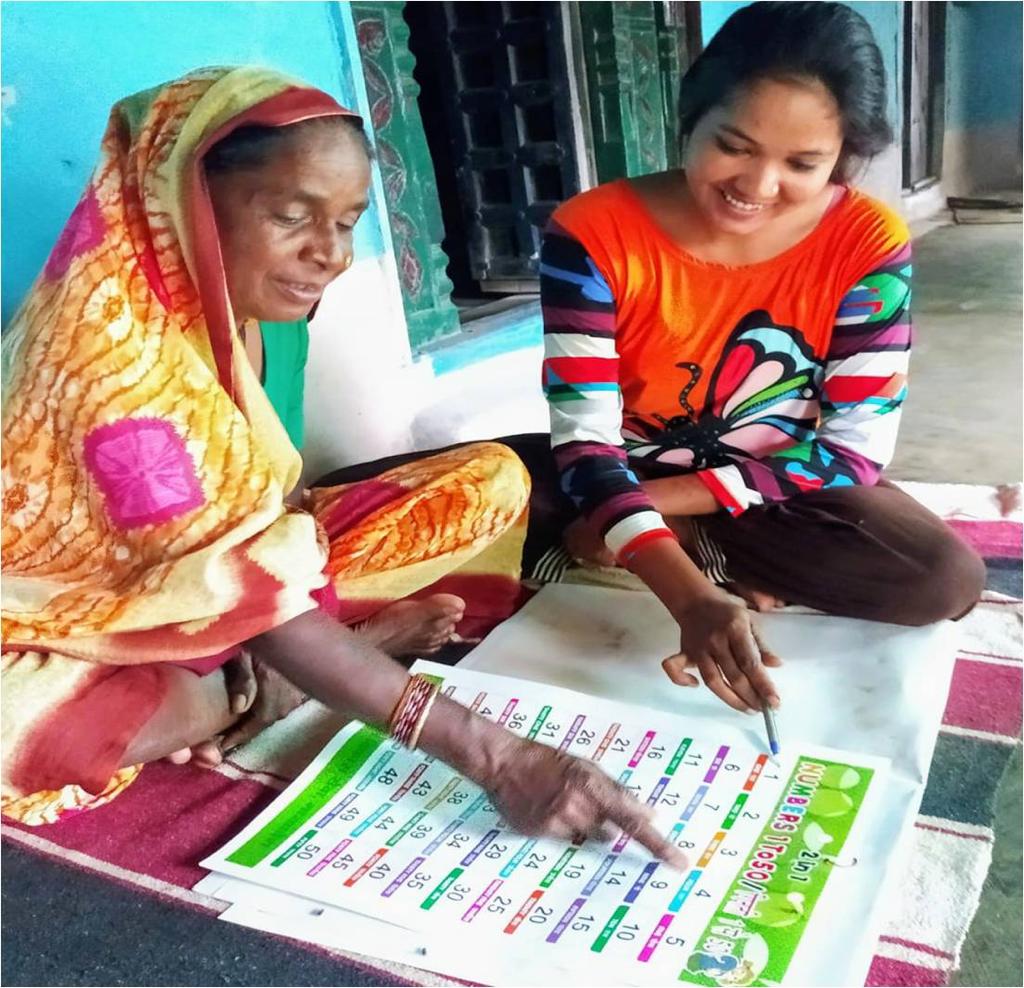
To ensure that this programme is successful, the team started by contacting the educated daughters and daughters-in-law from the panchayat. They were the ones who started the hand-holding programme and ensured maximum participation. “We wanted it to be a community-driven programme. We realised that getting someone from outside might not work since they would not understand these women and their dynamics,” she adds.
To further enhance this, she simultaneously launched an initiative called GyanDhan. This initiative focused on crowdsourcing resources like books, slates, writing instruments and all other tools that could be used to teach. This helped in setting up Mahila Gyanalays (Women Schools) across 490 Gram Panchayats in the district.
Devi Shivanshi (32) who got married and moved from Chhattisgarh to Mandla has completed her class 12 education and is now teaching others in the district. She says, “We conduct classes for two hours each day and sometimes three or four women come and on some days, many more turn up. Initially, they were also apprehensive about what we were trying to do, but now they understand and appreciate it.”
She continues, “I got the opportunity to study and it made a very big difference to the way I think. That is the change I want to bring to these women as well.”
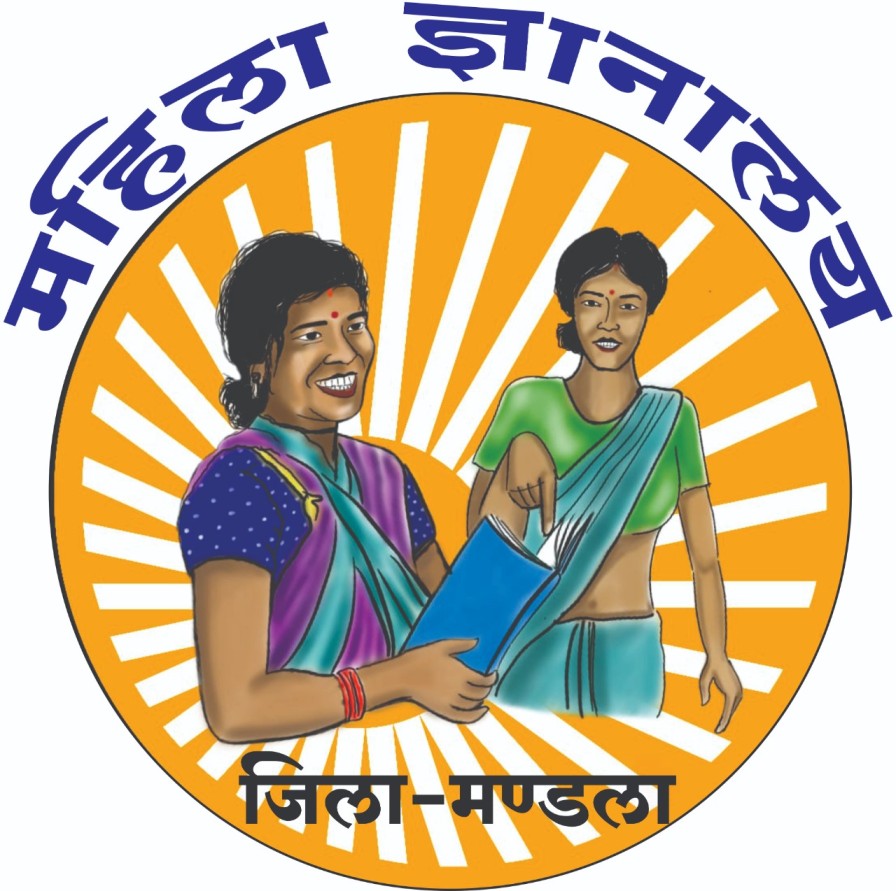
Kanwaljit Marari (26) a postgraduate in English from Mandla, who teaches computer literacy and is associated with the teaching programme, says, “I come from a literate family and I have seen how much of a difference it makes to one’s thought process. I had the privilege of being educated and when I came to this district, which is where my paternal family resides, I was shocked to see the abysmal level of illiteracy.”
She goes on, “I found the women to be so gullible and naive – they considered themselves inferior even. I decided to attempt to change this mindset. I am doing this without any salary. It is completely voluntary.”
On the experience of teaching these women, Kanwaljit says that while the initial few days were challenging and left her feeling very frustrated, the women were quick learners and continue to come to class with a burning desire to learn well. “I often heard men say that women, by nature, are ‘emotional fools’. I wanted to work on erasing that notion,” adds Kanwaljit.
Empowering women, one alphabet at a time
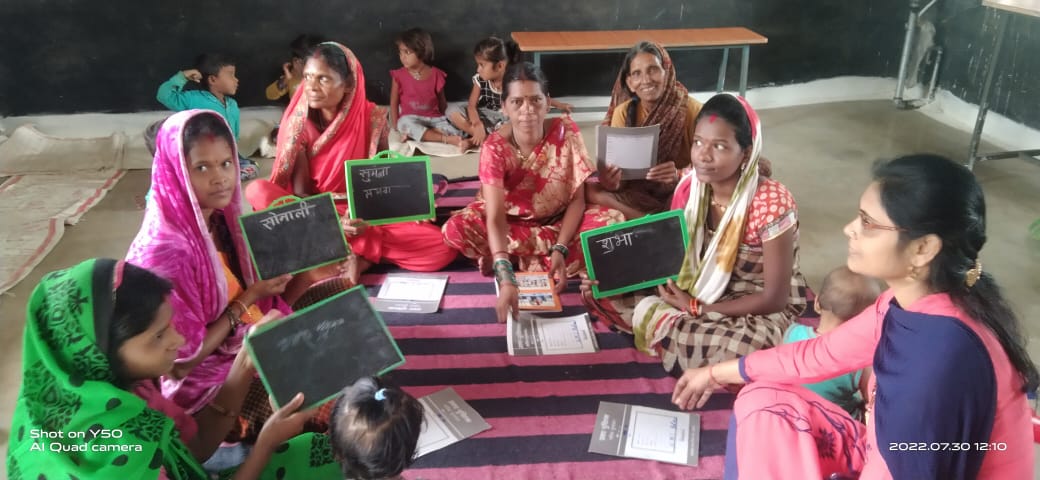
While the volunteers work hard to ensure that the programme is accessible and understood by all, students like Sunita Marco are the ones who are making it a success. The 40-year-old says that since she has never been to a school before this, she cannot even say with certainty if her age is actually 40. “I did not want to always put my thumbprint on important documents. I wanted to be able to sign my name just like I had seen others do,” she says.
Sunita keeps aside up to two hours each day to go to the centre and learn. She recalls the first day she stepped into the centre and says, “The first day I learnt the alphabet it felt like they were all dancing before me. It took me time but now when I am able to read I feel such a sense of accomplishment,” she adds. Sunita’s children, two girls and two boys, are also very proud of what their mother has achieved. “I am not an angutha chaap (illiterate) anymore,” she adds with a gleam in her eye.
To encourage more women to come out and learn, Harshika says that in the district whenever there was a formal function the most literate women from the village were called upon to be the chief guests.
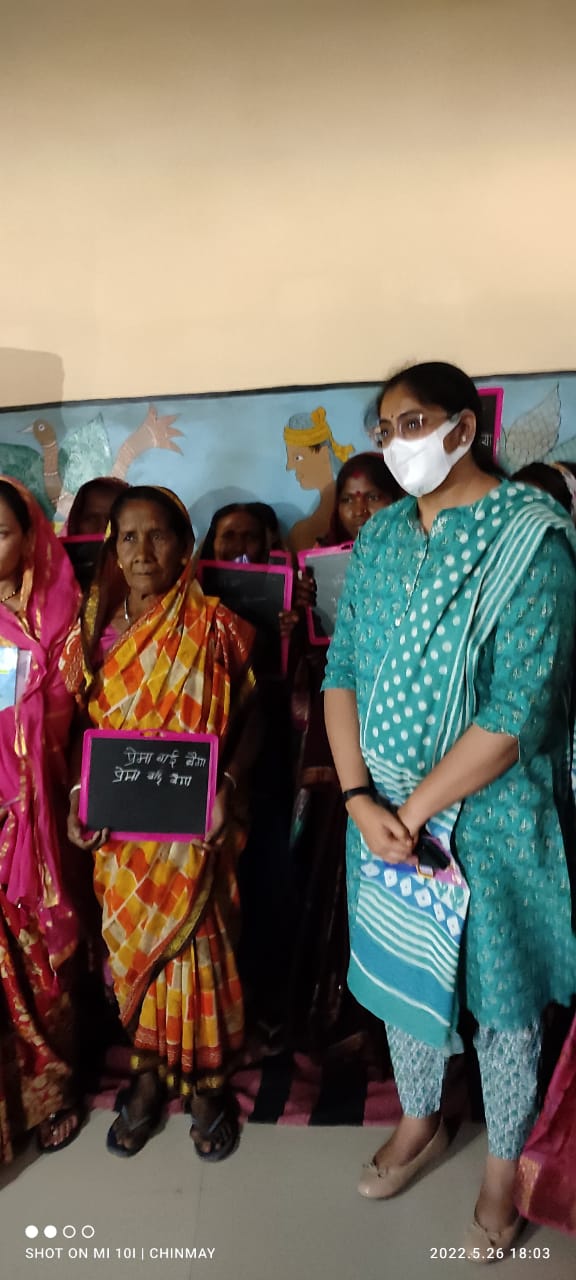
“Whether it was a school level celebration or even celebrating independence and Republic Day, it was always these women who were invited to be the main person. This brought them a lot of social respect and encouraged others as well,” she adds.
For Harshika, there have been several moments of joy since the implementation of this programme. “I recall meeting an 80-year-old lady at the Gram Panchayat who took the time to write me a letter thanking me for initiating this programme. She was one of the beneficiaries of the programme and she said that even though she had heard her name being called out all her life, to be able to read and write it has empowered her.”
The biggest win for Harshika comes when she sees the number of reductions in the reported bank forgery cases in her district. “This was the very reason why we started this programme. To safeguard the hard-earned money of every individual in my district. This is our true reward,” she concludes.
All images courtesy: Harshika Singh
(Edited by Yoshita Rao)
If you found our stories insightful, informative, or even just enjoyable, we invite you to consider making a voluntary payment to support the work we do at The Better India. Your contribution helps us continue producing quality content that educates, inspires, and drives positive change. Choose one of the payment options below for your contribution- By paying for the stories you value, you directly contribute to sustaining our efforts focused on making a difference in the world. Together, let’s ensure that impactful stories continue to be told and shared, enriching lives and communities alike. Thank you for your support. Here are some frequently asked questions you might find helpful to know why you are contributing?

This story made me
-
97
-
121
-
89
-
167




